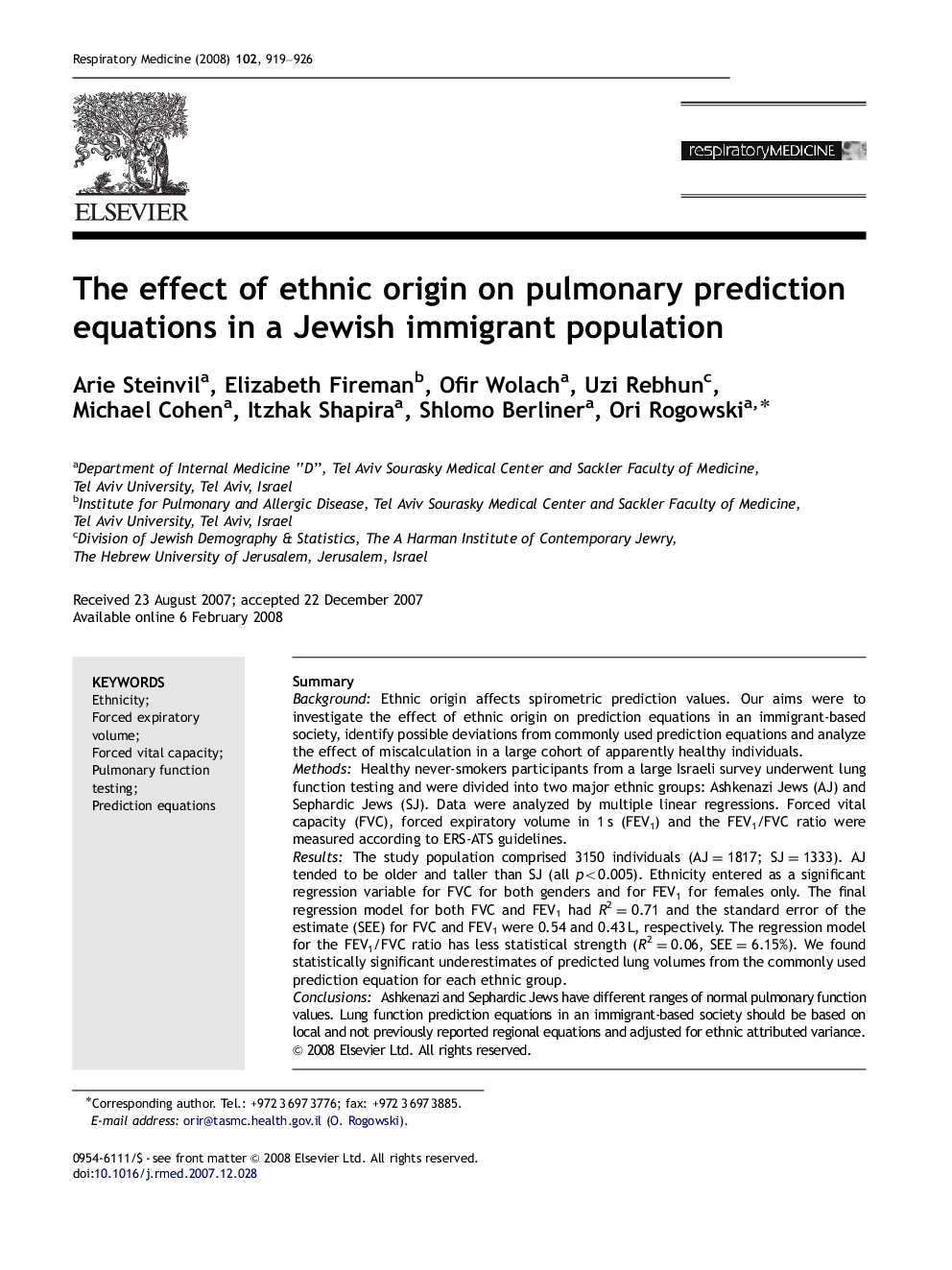| Article ID | Journal | Published Year | Pages | File Type |
|---|---|---|---|---|
| 4212410 | Respiratory Medicine | 2008 | 8 Pages |
SummaryBackgroundEthnic origin affects spirometric prediction values. Our aims were to investigate the effect of ethnic origin on prediction equations in an immigrant-based society, identify possible deviations from commonly used prediction equations and analyze the effect of miscalculation in a large cohort of apparently healthy individuals.MethodsHealthy never-smokers participants from a large Israeli survey underwent lung function testing and were divided into two major ethnic groups: Ashkenazi Jews (AJ) and Sephardic Jews (SJ). Data were analyzed by multiple linear regressions. Forced vital capacity (FVC), forced expiratory volume in 1 s (FEV1) and the FEV1/FVC ratio were measured according to ERS-ATS guidelines.ResultsThe study population comprised 3150 individuals (AJ=1817; SJ=1333). AJ tended to be older and taller than SJ (all p<0.005). Ethnicity entered as a significant regression variable for FVC for both genders and for FEV1 for females only. The final regression model for both FVC and FEV1 had R2=0.71 and the standard error of the estimate (SEE) for FVC and FEV1 were 0.54 and 0.43 L, respectively. The regression model for the FEV1/FVC ratio has less statistical strength (R2=0.06, SEE=6.15%). We found statistically significant underestimates of predicted lung volumes from the commonly used prediction equation for each ethnic group.ConclusionsAshkenazi and Sephardic Jews have different ranges of normal pulmonary function values. Lung function prediction equations in an immigrant-based society should be based on local and not previously reported regional equations and adjusted for ethnic attributed variance.
